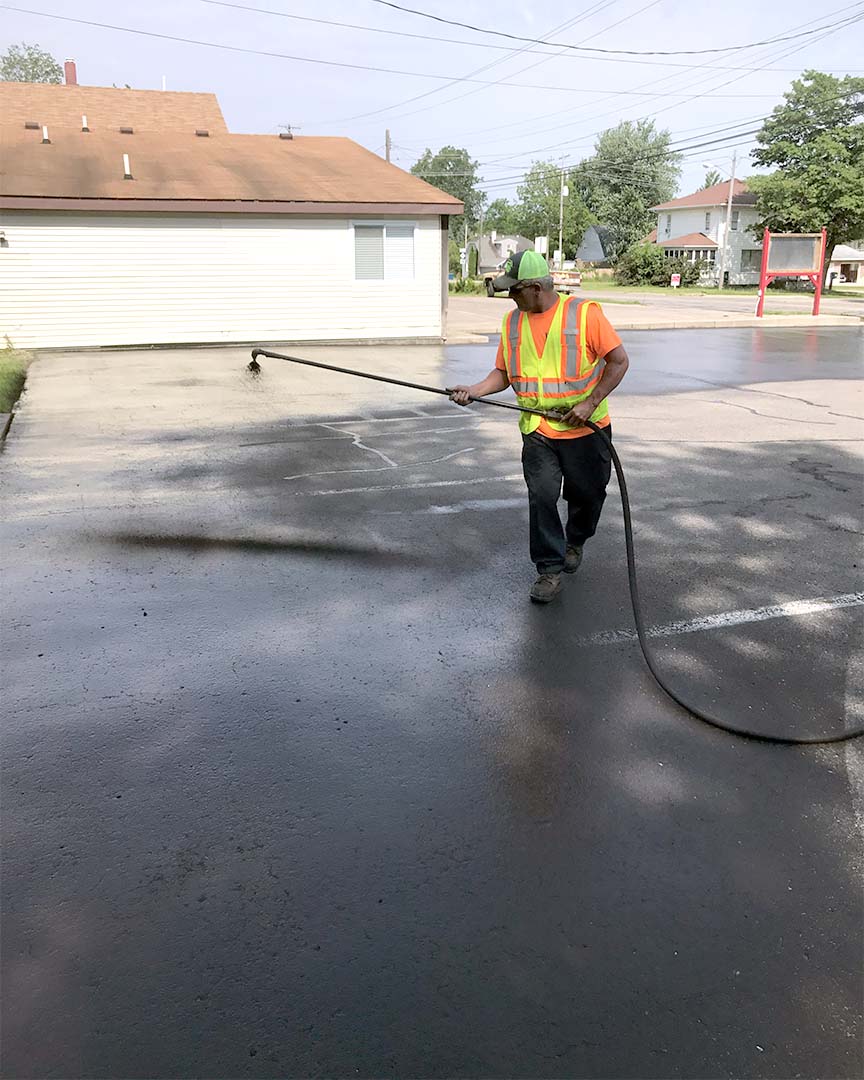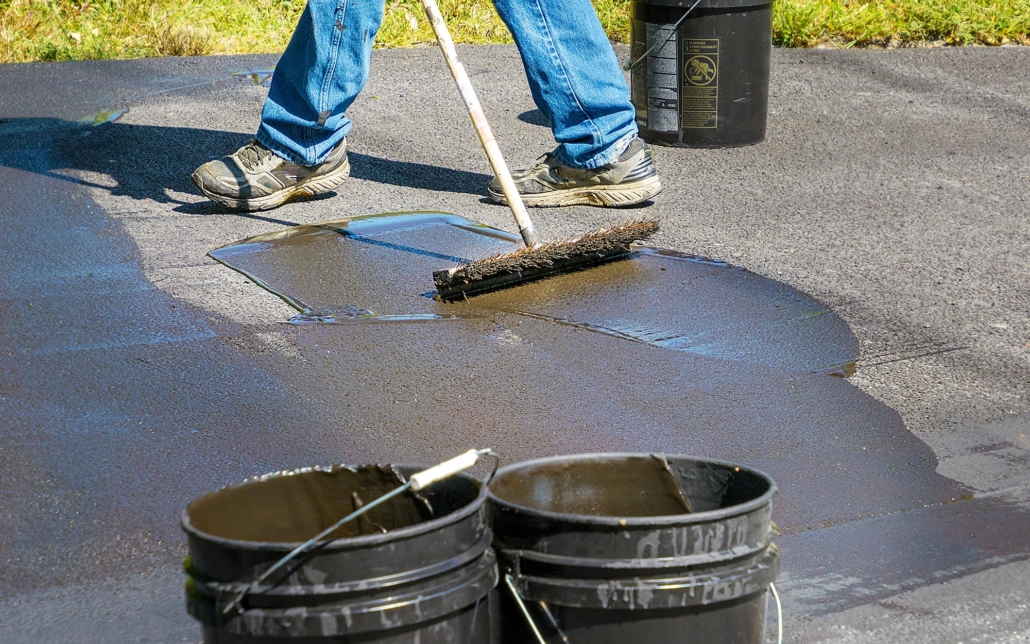The Future of Roadway Building And Construction: Cold Mix Asphalt Innovations
In the realm of roadway construction, the development of cold mix asphalt innovations holds significant promise for improving framework growth. As the need for lasting services remains to grow, the assimilation of these developments provides a look into a future where roads are not just paths but likewise contributors to environmental conservation and efficiency. The potential for improved efficiency, longevity, and cost-effectiveness increases appealing questions concerning how these innovations may redefine the landscape of transportation facilities.

Lasting Advantages of Cold Mix Asphalt
Cold mix asphalt supplies a sustainable service for roadway building jobs because of its eco-friendly residential properties and expanded long life. Unlike traditional hot mix asphalt, cold mix asphalt does not require high temperatures during the mixing process, resulting in considerably lower energy consumption and decreased greenhouse gas emissions (asphalt patch repair). This makes chilly mix asphalt a much more environmentally friendly option for road building and construction jobs, aligning with global initiatives to reduce carbon footprints and combat environment adjustment
The production of cold mix asphalt takes in less power and gas compared to warm mix asphalt, making it a much more lasting choice for protecting limited sources. By picking cool mix asphalt for road building and construction tasks, stakeholders can add to a much more effective and sustainable transport network.
Enhanced Resilience and Longevity
Enhancing the resilience and durability of roadway infrastructure is a vital element of enhancing transportation networks. Cold mix asphalt technologies play a significant function in accomplishing this goal. By including innovative innovations and additives, chilly mix asphalts are now designed to hold up against hefty website traffic tons, varying temperature levels, and environmental variables, causing longer-lasting roads.
One essential aspect adding to the enhanced longevity of cool mix asphalt is its enhanced resistance to rutting and splitting. Conventional hot mix asphalts are susceptible to these forms of wear and tear, resulting in enhanced upkeep needs and shorter roadway life expectancies. Cold mix asphalts, on the various other hand, show higher adaptability and elasticity, permitting them to much better endure the stress and anxieties enforced by website traffic and climate condition.
Moreover, the long life of road surface areas is expanded through the boosted bonding capacities of cold mix asphalt. These ingenious mixes form strong adhesive bonds with existing pavement layers, developing a more robust road framework that stands up to delamination and fracture formation over time. Consequently, transport firms can take advantage of minimized maintenance expenses and prolonged life span of streets, eventually resulting in more durable and lasting facilities networks.

Boosted Efficiency in Different Weather Conditions
Improved efficiency in different weather problems is an essential factor to consider for contemporary road construction products like cool mix asphalt. Cold mix asphalts are made to hold up against an array of temperature levels, from extreme chilly to high warmth, without jeopardizing their structural stability.
Cold mix asphalts display exceptional resistance to variables such as dampness, which can cause traditional warm mix asphalts to break down over time. By staying long lasting and steady in wet conditions, chilly mix asphalts reduce the possibility of splits and fractures creating on roadway surfaces, eventually extending the life expectancy of the infrastructure.
Cost-Effectiveness and Budget-Friendly Solutions

With the climbing demand for sustainable infrastructure solutions, the emphasis currently changes in the direction of checking out economical and cost-effective alternatives within road construction technologies. Cost-effectiveness in road building is crucial for federal governments, communities, and private service providers intending to maximize framework financial investments. Cold mix asphalt technologies use a promising opportunity for attaining this goal by lowering total project expenses.
One trick element adding to the cost-effectiveness of cool mix asphalt is its reduced production expenses contrasted to conventional hot mix asphalt - asphalt patch repair. Cold mix asphalt can be produced making use of much less power and fewer sources, causing cost savings in production costs. Furthermore, the application process for cool mix asphalt is view it now easier and requires less customized equipment, additional minimizing construction prices
Moreover, the prolonged life expectancy and longevity of cold mix asphalt add to long-term price savings. Its capacity to endure numerous weather and stand up to splitting and wear and tear results in lower upkeep and fixing expenses gradually. By accepting economical cold mix asphalt services, road building and construction tasks can this content attain budget plan performance without compromising on high quality or efficiency.
Ecological Impact and Carbon Impact Decrease
Lessening the ecological effect and decreasing the carbon footprint are critical considerations in contemporary roadway building innovations. Conventional asphalt manufacturing releases significant CO2 emissions and adds to ecological destruction. To attend to these concerns, cold mix asphalt innovations have arised as a sustainable alternative. By utilizing chilly mix asphalt, roadway construction tasks can substantially minimize their carbon footprint. This technology removes the demand for energy-intensive home heating procedures, resulting in reduced greenhouse gas discharges throughout manufacturing. Additionally, chilly mix asphalt can be generated making use of recycled products, further boosting its environmental advantages.
Along with the manufacturing stage, the application of cold mix asphalt provides environmental benefits throughout the road's lifespan. The product's sturdiness and resistance to temperature level fluctuations reduce the demand for frequent repair and maintenance, decreasing overall resource consumption and environmental impact. As sustainability comes to be increasingly important in framework growth, chilly mix asphalt stands out as an appealing service to reduce the environmental effects of roadway building and construction.
Conclusion
In conclusion, cold mix asphalt advancements supply sustainable advantages, improved toughness, and enhanced performance in numerous climate condition. With cost-effectiveness and a concentrate on decreasing ecological effect and carbon footprint, cold mix asphalt is shaping the future of roadway construction. Its environment-friendly properties make it an appealing option for developing safer and much more dependable road networks while contributing to worldwide initiatives to combat climate modification.
Unlike standard warm mix asphalt, cool mix asphalt does not call for high temperature levels during the mixing procedure, resulting in significantly lower energy consumption and decreased greenhouse gas emissions. The production of chilly mix asphalt consumes less power and gas compared to warm mix asphalt, making it a more sustainable selection for protecting limited resources. Cold mix asphalts are created to stand up to a range of temperature levels, from severe chilly to high warmth, without compromising their structural integrity.Cold mix asphalts display excellent resistance to factors such as moisture, which can create traditional hot mix asphalts to degrade over time.One secret element contributing to the cost-effectiveness of chilly mix asphalt is Read More Here its lower production expenses contrasted to standard warm mix asphalt.